Understanding Why You Crave Sugar After a Workout
If you’ve ever finished a run, a strength session, or even a long walk and found yourself desperately reaching for something sweet, you’re not alone. Many people experience intense sugar cravings after exercise, even if they don’t normally crave sweets. But why do you crave sugar after a workout? This experience is rooted in biology, chemistry, and psychology. It’s a multifaceted reaction that tells us a lot about how the body functions under physical stress and recovery. While many people may dismiss this as a simple lack of willpower, the truth is far more complex and scientifically grounded.

Exercise demands energy, and your body often looks for the fastest way to replenish it. Sugar provides quick glucose—a form of energy the muscles and brain use almost instantly. This response is not accidental; it’s an evolutionary survival mechanism designed to restore balance quickly. But understanding this mechanism is the first step in learning how to respond to these cravings in a way that supports, rather than sabotages, your fitness and health goals.
You may also like: Why Am I Craving Sweets All of a Sudden? Expert-Backed Reasons and How to Stop Sugar Cravings Naturally
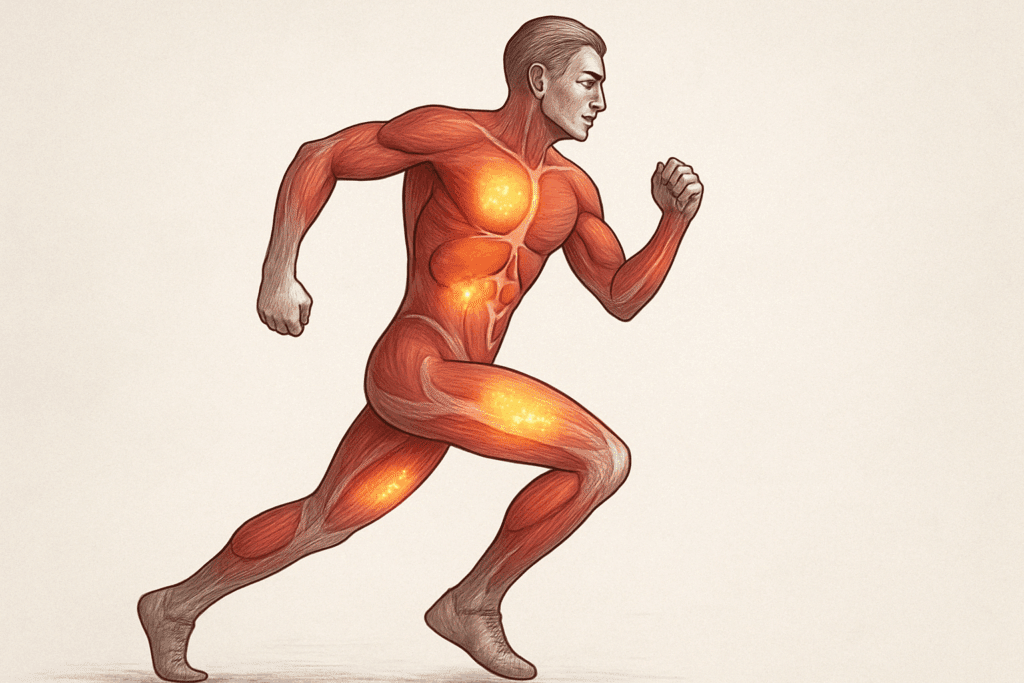
How Exercise Depletes Energy Stores and Triggers Sugar Cravings
During physical activity, especially moderate to intense workouts, your body draws on glycogen stores in your muscles and liver. Glycogen is the stored form of glucose, and it acts as your main energy reservoir during exercise. The longer or more intense the activity, the more glycogen you burn. When your body senses that these energy stores are running low, it initiates a hunger response—specifically a craving for foods rich in carbohydrates, which are quickly converted to glucose.
This is one of the primary reasons why sugar cravings after exercise can feel so urgent. It’s not just about replenishment; it’s about speed. Simple sugars provide rapid absorption into the bloodstream, which allows your body to quickly recover and restore energy balance. But while this is a perfectly natural biological signal, it can become a challenge if it leads to overconsumption of processed foods or sugary snacks that hinder, rather than help, your recovery.
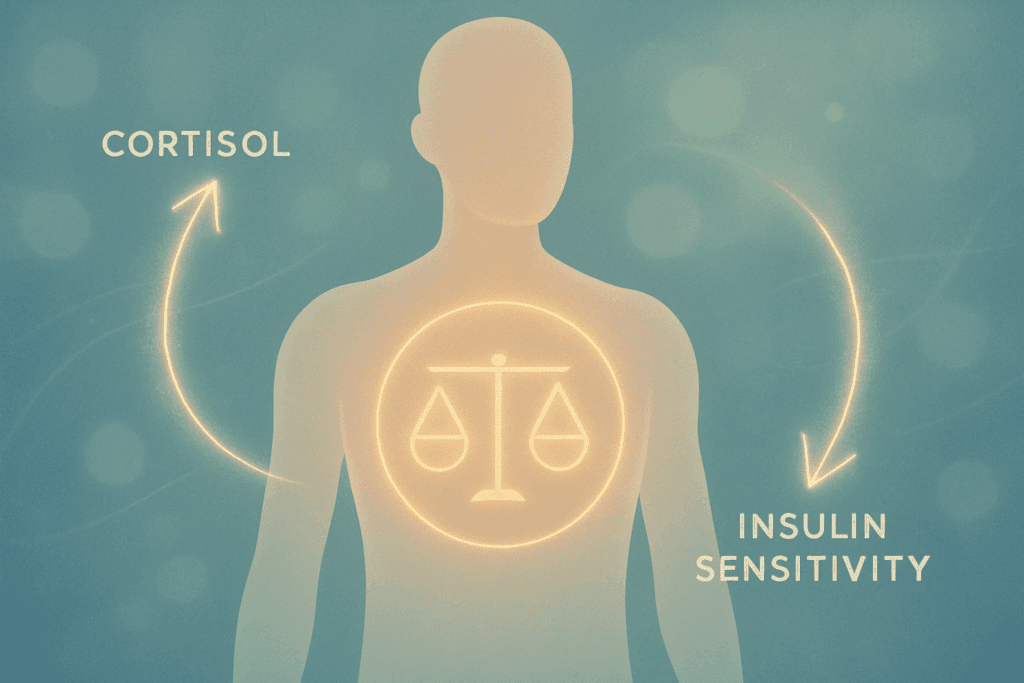
The Hormonal Influence on Post-Exercise Sugar Cravings
When considering why you crave sugar after exercise, it’s important to understand the hormonal shifts that occur during and after a workout. Physical exertion increases the release of cortisol, a stress hormone that has a significant influence on metabolism and blood sugar. Cortisol can stimulate appetite—particularly for high-energy foods like sugar—especially if your workout is intense or prolonged.
Simultaneously, your body experiences a boost in insulin sensitivity right after exercise. This means your muscles are especially eager to absorb glucose and amino acids for recovery. This biological window is sometimes called the “anabolic window,” and it explains why your body not only craves sugar but is also primed to use it efficiently during this period. However, if you don’t replenish with nutrient-dense foods, this opportunity can be lost to empty calories, leading to a crash later on.
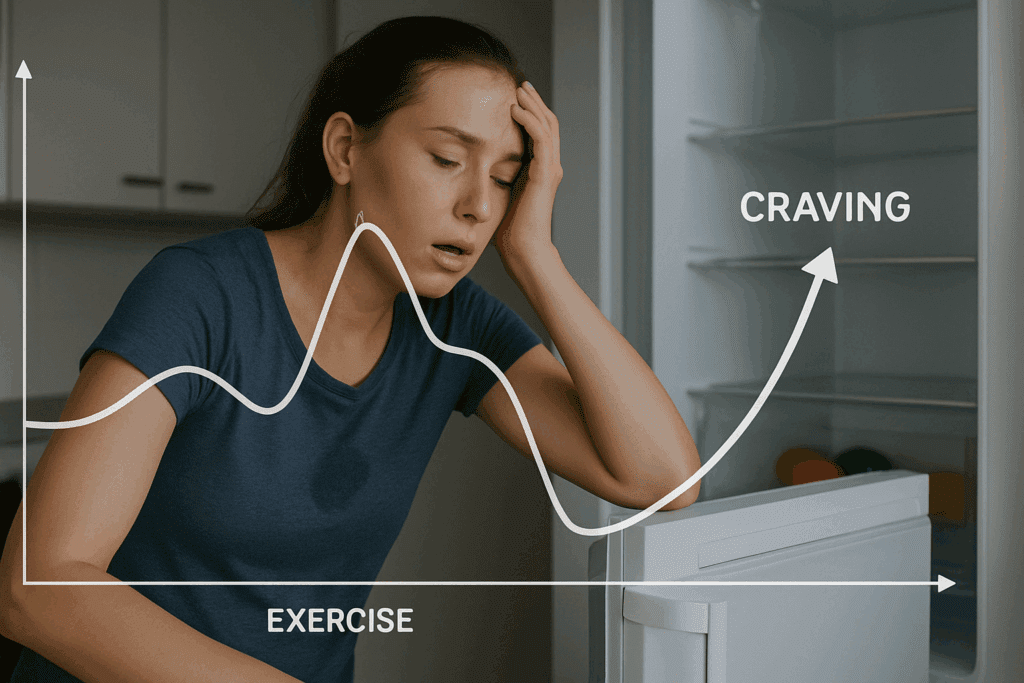
Blood Sugar Fluctuations and Their Role in Craving Sugar
Another factor that explains why you crave sugar after a workout is the fluctuation in your blood glucose levels. Exercise naturally lowers blood sugar as your muscles pull glucose from the bloodstream for fuel. If you begin your workout with already low or borderline blood sugar—perhaps because you skipped a meal or last ate several hours earlier—this dip can be even more pronounced.
When blood glucose drops too low, your brain sounds the alarm. Since it relies on glucose to function properly, it triggers strong hunger signals, often in the form of sugar cravings. This is not just about energy recovery—it’s your body trying to maintain brain function and prevent fatigue, dizziness, or even confusion. Understanding this mechanism highlights the importance of managing your blood sugar before and after workouts to avoid these intense cravings.
The Type and Intensity of Exercise Matters
Not all workouts trigger sugar cravings equally. Longer endurance workouts—like running, cycling, or swimming—burn a greater proportion of glycogen and are more likely to provoke intense sugar cravings after exercise. Similarly, high-intensity interval training (HIIT) puts enormous demands on your glucose reserves, which often leads to stronger cravings immediately following the workout.
On the other hand, strength training or low-impact activities like yoga may still trigger cravings, but they often manifest more gradually. The hormonal changes are still present, but the body’s demand for immediate glucose is slightly lower. Recognizing how different forms of exercise affect your energy systems allows you to prepare appropriately with pre- and post-workout nutrition strategies that can reduce the urge to binge on sweets.
Emotional Triggers and Psychological Conditioning
While physiology plays a dominant role, psychology cannot be ignored. For many people, exercise is associated with reward. This cultural narrative—often ingrained from childhood—teaches us that hard work deserves a treat. After a grueling session at the gym, reaching for a sugary snack can feel justified. Over time, this reinforcement builds a conditioned response, making you crave sugar even when your body doesn’t necessarily need it.
Moreover, exercise itself creates a temporary mood lift by boosting endorphins and dopamine. When that post-workout high starts to fade, sugar can seem like a quick way to maintain the feel-good sensation. Unfortunately, this strategy can backfire, leading to energy crashes and guilt that diminish the psychological benefits of exercise. Developing awareness of these emotional patterns is key to breaking the cycle and choosing more mindful, health-promoting behaviors.
Poor Pre-Workout Nutrition Can Lead to Sugar Cravings After Exercise
Another often-overlooked reason why you crave sugar after exercise is inadequate nutrition before your workout. Exercising on an empty stomach, especially first thing in the morning, depletes glycogen rapidly and increases the likelihood of blood sugar drops and subsequent cravings. Even if your goal is weight loss or fat burning, skipping meals entirely can make it harder to control your appetite later on.
Fueling your body with the right combination of nutrients—particularly complex carbohydrates, protein, and a small amount of fat—before you work out can help stabilize energy levels and reduce the intensity of sugar cravings afterward. A banana with peanut butter, a small bowl of oats, or a slice of whole grain toast with hummus can provide steady energy without spiking your blood sugar.
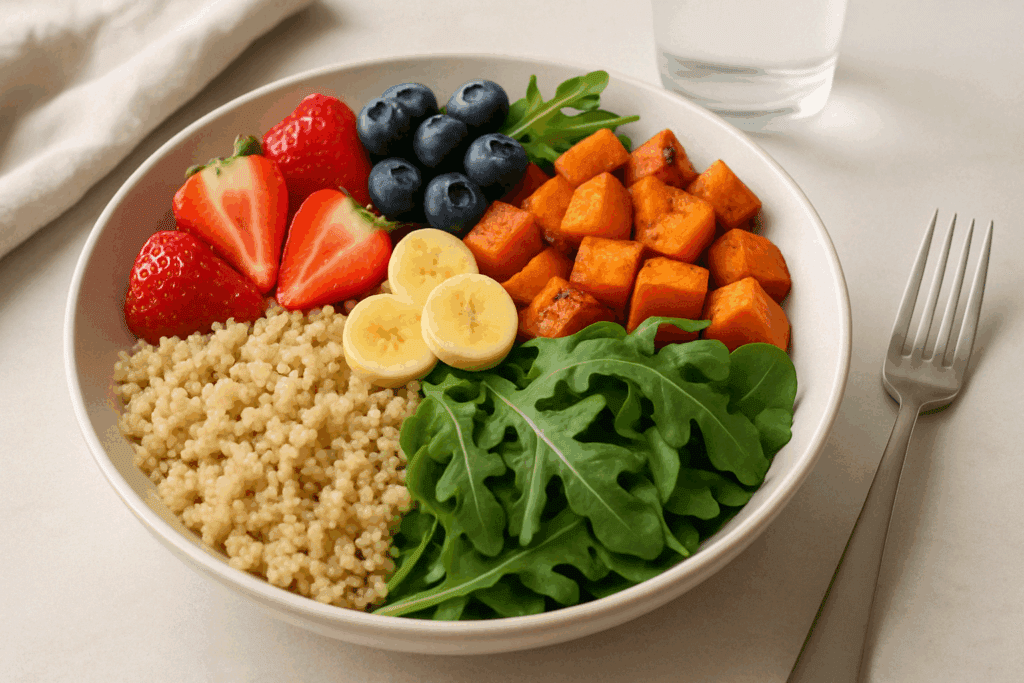
Smart Post-Workout Nutrition to Curb Sugar Cravings
What you eat after your workout can dramatically impact your recovery and your cravings. Post-workout meals or snacks that combine protein with complex carbs can help restore glycogen levels and support muscle repair without triggering blood sugar spikes. By feeding your body what it genuinely needs, you satisfy its demand for replenishment while minimizing the likelihood of uncontrollable sugar cravings.
Whole foods like sweet potatoes, quinoa, fruit paired with Greek yogurt, or a smoothie with greens, berries, and plant-based protein offer both fast and sustained energy. These options are rich in micronutrients and fiber, helping to regulate glucose absorption and keep you full longer. Planning your post-exercise nutrition in advance also helps you avoid the trap of grabbing whatever processed snack is within reach when cravings hit.
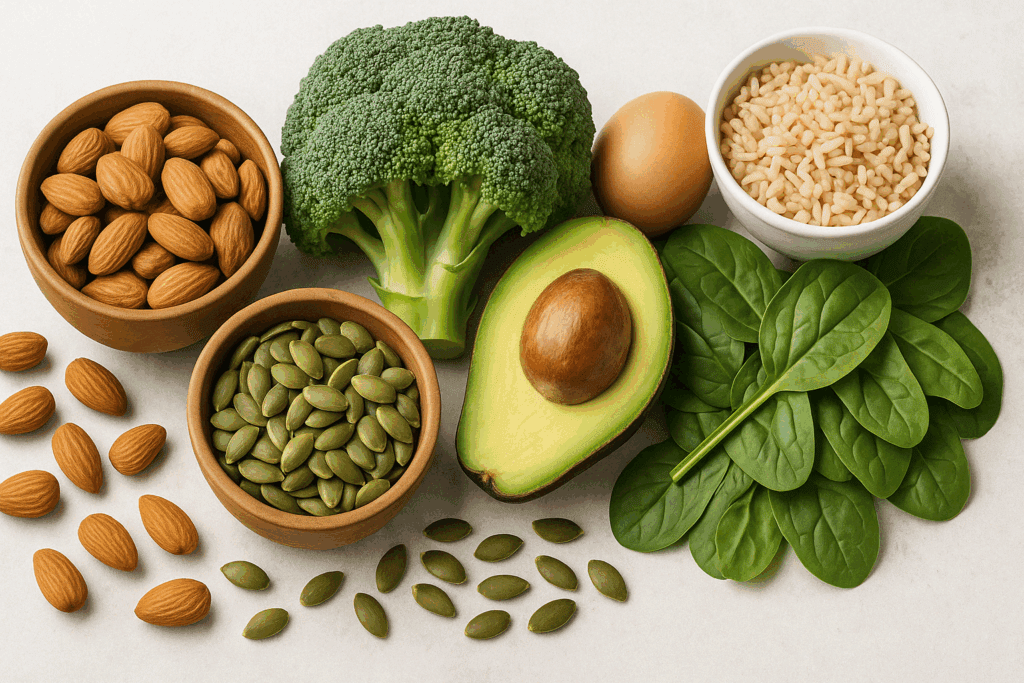
Could Nutrient Deficiencies Be Driving Your Cravings?
Although the immediate cause of sugar cravings after exercise is usually related to energy depletion, underlying nutritional deficiencies can also amplify these cravings. Magnesium, for example, is involved in hundreds of metabolic functions, including blood sugar regulation. A magnesium deficiency can increase cravings for chocolate and other sweets, particularly after physical activity.
Chromium and zinc also play roles in insulin function and appetite regulation, while B-vitamins support carbohydrate metabolism and energy production. If your post-exercise sugar cravings are persistent or unusually strong, it may be helpful to evaluate your overall diet for balance and completeness. Ensuring adequate intake of key vitamins and minerals can improve your metabolic resilience and reduce reliance on sugar for quick energy.
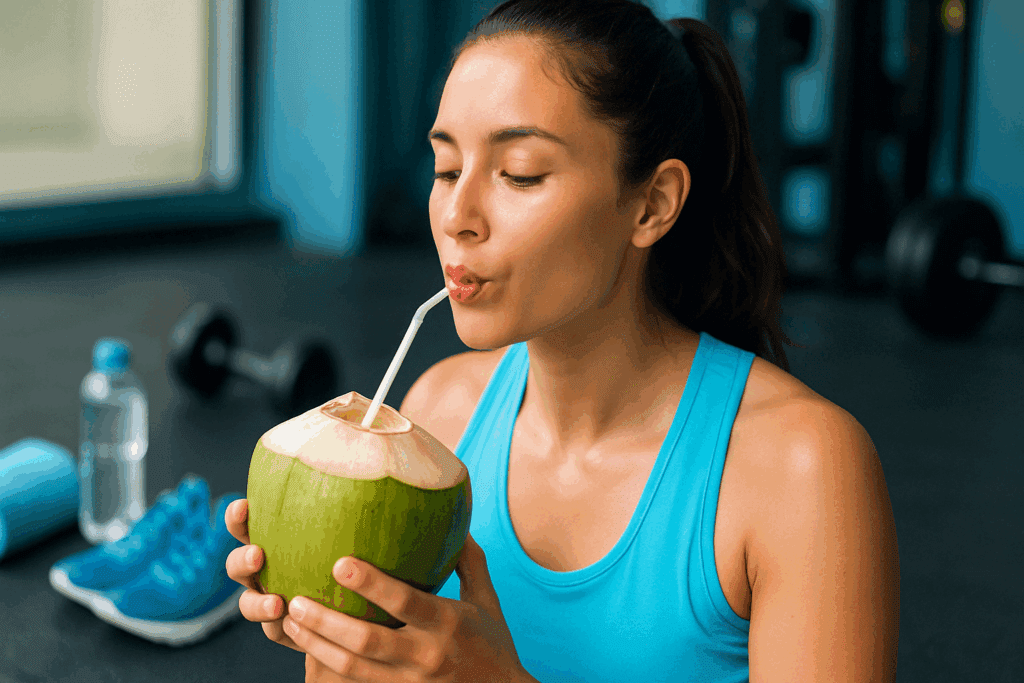
The Importance of Hydration and Electrolyte Balance
Dehydration can masquerade as hunger or sugar cravings, especially after intense workouts. When you lose fluids through sweat, your body also loses electrolytes—minerals like sodium, potassium, and magnesium that help maintain nerve function and fluid balance. Even mild dehydration can impair energy levels and trigger cravings as your body searches for a quick fix.
Rehydrating with water and consuming electrolyte-rich foods after exercise can help prevent false hunger cues. Coconut water, bananas, leafy greens, and seeds can support post-workout recovery without resorting to sugar. Paying attention to your thirst and replenishing fluids systematically throughout the day is a simple but powerful tool for managing sugar cravings naturally.
Reframing Recovery: Beyond Sugar as a Reward
To truly manage why you crave sugar after a workout, you must reframe how you define recovery. Rather than seeing sugar as a reward for exertion, begin to associate recovery with restoration—fueling your body with what it truly needs to heal, grow, and adapt. This mindset shift moves you away from the cycle of overexertion and overindulgence and toward a more balanced, nourishing routine.
Non-food rewards can also support this shift. A relaxing shower, listening to your favorite music, stretching, or even journaling can provide that same post-workout satisfaction without relying on sugar. By decoupling exercise from the expectation of sweet treats, you create space for more conscious, nourishing choices to take root.
When to Seek Help for Persistent Sugar Cravings
If you’ve tried multiple strategies and still feel overwhelmed by sugar cravings after exercise, it may be time to seek professional guidance. Registered dietitians, nutritionists, or integrative health practitioners can help identify patterns, deficiencies, or imbalances that may be driving these cravings. You might also benefit from working with a therapist if emotional eating or reward-based behaviors are deeply rooted.
Persistent, intense cravings may be a sign of blood sugar dysregulation, adrenal fatigue, or chronic stress. By addressing these root causes, you gain better control over your appetite and more confidence in your health choices. It’s not about restricting or depriving yourself—it’s about understanding your body’s signals and responding with wisdom.
Frequently Asked Questions (FAQ): Why Do I Crave Sugar After Exercise?
1. Can a lack of sleep worsen sugar cravings after exercise?
Yes, sleep deprivation can significantly intensify sugar cravings after exercise. When you’re sleep-deprived, your body produces more ghrelin (the hunger hormone) and less leptin (the hormone that signals fullness), leading to an increased desire for quick energy—often in the form of sugar. If you’re wondering why you crave sugar after a workout despite a healthy diet, poor sleep might be the missing link. Exercise can already deplete glycogen, and when combined with inadequate rest, your brain craves fast-digesting carbohydrates to compensate for fatigue. This interaction creates a perfect storm that amplifies sugar cravings after exercise, especially late in the day.
2. Do artificial sweeteners help or harm post-exercise sugar cravings?
Artificial sweeteners may seem like a smart way to curb cravings, but they can sometimes backfire. While they offer a sweet taste without calories, they don’t provide the glucose your body is genuinely seeking after physical exertion. This disconnect between taste and metabolic response may actually intensify sugar cravings after exercise by confusing your brain’s reward pathways. If you’ve ever asked why do I crave sugar after exercise even after having a diet soda or sugar-free snack, the answer may lie in your body’s unmet energy needs. Opting for nutrient-dense whole foods, even with natural sugars, is often a better solution for recovery and satiety.
3. Can menstrual cycle phases influence sugar cravings after workouts?
Absolutely. Hormonal shifts during the menstrual cycle can heighten sensitivity to sugar cravings after exercise. In the luteal phase—the second half of the cycle when progesterone peaks—women tend to have higher metabolic rates and increased carbohydrate needs. This is also when cravings, particularly for sweet and salty foods, become more pronounced. If you’re asking why do I crave sugar after a workout more at certain times of the month, fluctuating estrogen and progesterone levels may be responsible. Planning your post-workout nutrition based on your cycle phase can be an effective way to manage cravings with greater precision and self-compassion.
4. How does gut health play a role in sugar cravings after working out?
Your gut microbiome can influence why you crave sugar after exercise, particularly if there’s an overgrowth of sugar-loving bacteria like Candida. These microbes can actually send signals to your brain to increase sugar intake, especially after exertion when the body is more vulnerable to cravings. Post-exercise recovery is a time when the body is highly adaptive, and if your gut flora is imbalanced, it may steer your cravings in an unhealthy direction. Supporting gut health through probiotics, prebiotics, and fiber-rich foods may help regulate sugar cravings after exercise. A well-balanced gut environment leads to more balanced hunger signals and fewer extreme post-workout urges for sweets.
5. Can overtraining lead to more intense sugar cravings?
Yes, overtraining can exacerbate sugar cravings after exercise due to chronic energy deficits and hormonal imbalances. When the body doesn’t have adequate time to recover, cortisol remains elevated, and glycogen stores are never fully replenished. This state of constant depletion can make you wonder why you crave sugar after a workout even if you’ve already eaten. The cravings are your body’s attempt to regain energy balance and compensate for overuse. Managing workout intensity, incorporating rest days, and increasing caloric intake during high-demand training periods can reduce cravings and support more sustainable performance.
6. Are sugar cravings after a workout different for endurance athletes?
Endurance athletes often experience more pronounced sugar cravings after exercise due to prolonged and intense glycogen depletion. When you engage in hours-long activities like marathon running, your glucose reserves are significantly lowered, leading to an urgent physiological need for rapid carbohydrate replenishment. Asking why do I crave sugar after exercise is common among long-distance runners, triathletes, and cyclists who rely heavily on carbohydrates as a primary energy source. In these cases, incorporating recovery nutrition strategies that include high-quality carbohydrates alongside protein becomes critical—not just for cravings, but for performance and recovery. It’s also important for endurance athletes to spread carb intake across multiple small meals post-exercise to prevent insulin spikes and subsequent crashes.
7. Can cravings for sugar post-exercise be connected to dopamine release?
Yes, dopamine plays a key role in why you crave sugar after a workout, especially when exercise is used as a tool for mood regulation. Physical activity boosts dopamine temporarily, creating a sense of euphoria and motivation. However, as dopamine levels return to baseline, your brain may seek another quick source of reward—often in the form of sugar. This is particularly relevant if you’ve trained your body to expect a sweet treat after every session. In these cases, sugar cravings after exercise are not about replenishment, but about prolonging a dopamine high. Recognizing this psychological pattern can help you adopt healthier reward systems, such as relaxation rituals or engaging in non-food hobbies after training.
8. How can stress outside of exercise contribute to post-workout sugar cravings?
Chronic stress unrelated to physical activity can intensify sugar cravings after exercise, compounding the hormonal and emotional drivers already at play. If you’re entering a workout in a stressed state, cortisol levels are already elevated, and exercise may briefly relieve the stress but increase your physiological drive for glucose afterward. This is why people under pressure often ask, why do I crave sugar after a workout even when they’ve had a healthy meal. The interaction between psychological stress and physical exertion can heighten your brain’s need for comfort foods, particularly sugary ones. Addressing external stressors through meditation, therapy, or journaling can reduce this overlap and help regulate cravings.
9. Are there cultural factors influencing why some people crave sugar after exercise more than others?
Cultural influences and dietary conditioning can strongly shape why you crave sugar after a workout. In many Western societies, sugary snacks or sports drinks are marketed as essential post-workout items, reinforcing the idea that exercise justifies indulgence. This messaging can subconsciously train individuals to expect sugar as a reward, regardless of physiological need. In contrast, cultures that emphasize whole foods and plant-based recovery meals often report fewer instances of sugar cravings after exercise. Social norms, media influence, and childhood experiences all contribute to how we respond to hunger cues post-workout. Becoming aware of these cultural scripts can help you reshape your recovery habits in a healthier, more intentional way.
10. Could cold-weather workouts increase sugar cravings more than warm-weather ones?
Interestingly, workouts performed in cold environments may intensify sugar cravings after exercise. In colder temperatures, the body works harder to maintain its core temperature, which increases overall calorie expenditure. This thermogenic demand leads to quicker depletion of energy stores, making sugar-rich foods more appealing after exercise. If you’re asking why do I crave sugar after exercise more during winter runs or alpine sports, it’s likely because your body is trying to compensate for both activity and heat loss. Choosing warm, nutrient-dense post-workout meals—like oatmeal with fruit and nuts—can help satisfy cravings while also supporting thermoregulation and muscle repair.
Conclusion: Responding to Sugar Cravings After Exercise With Awareness and Intention
Understanding why you crave sugar after exercise gives you the power to respond with intention rather than impulse. Sugar cravings after exercise are not a sign of weakness—they’re a natural biological response to physical exertion, energy depletion, and hormonal changes. However, they don’t have to dictate your eating habits or sabotage your goals.
By tuning into your body’s needs, preparing with smart pre- and post-workout nutrition, and managing hydration and nutrient levels, you can support recovery without relying on empty-calorie fixes. Addressing psychological triggers and reward patterns can also help break the habit of post-workout sugar binges and create a healthier, more sustainable relationship with food and exercise.
Ultimately, your cravings are not the enemy—they’re messages. The more fluently you can interpret those messages, the better equipped you’ll be to nourish your body, fuel your performance, and enjoy the long-term benefits of movement and mindful eating. With the right strategies in place, you can transition from sugar-dependent recovery to sugar-smart living, one workout at a time.
Was this article helpful? Don’t let it stop with you. Share it right now with someone who needs to see it—whether it’s a friend, a colleague, or your whole network. And if staying ahead on this topic matters to you, subscribe to this publication for the most up-to-date information. You’ll get the latest insights delivered straight to you—no searching, no missing out.
Further Reading:
Why You’re Always Craving Sugar—Plus, Expert Tips on How to Stop
Sugar Before, During, and After Your Workout: How It Can Help Your Training
7 Tricks to Control Sugar Cravings
Disclaimer
The information contained in this article is provided for general informational purposes only and is not intended to serve as medical, legal, or professional advice. While NewsHealthWatch strives to present accurate, up-to-date, and reliable content, no warranty or guarantee, expressed or implied, is made regarding the completeness, accuracy, or adequacy of the information provided. Readers are strongly advised to seek the guidance of a qualified healthcare provider or other relevant professionals before acting on any information contained in this article. NewsHealthWatch, its authors, editors, and contributors expressly disclaim any liability for any damages, losses, or consequences arising directly or indirectly from the use, interpretation, or reliance on any information presented herein. The views and opinions expressed in this article are those of the author(s) and do not necessarily reflect the official policies or positions of NewsHealthWatch.

